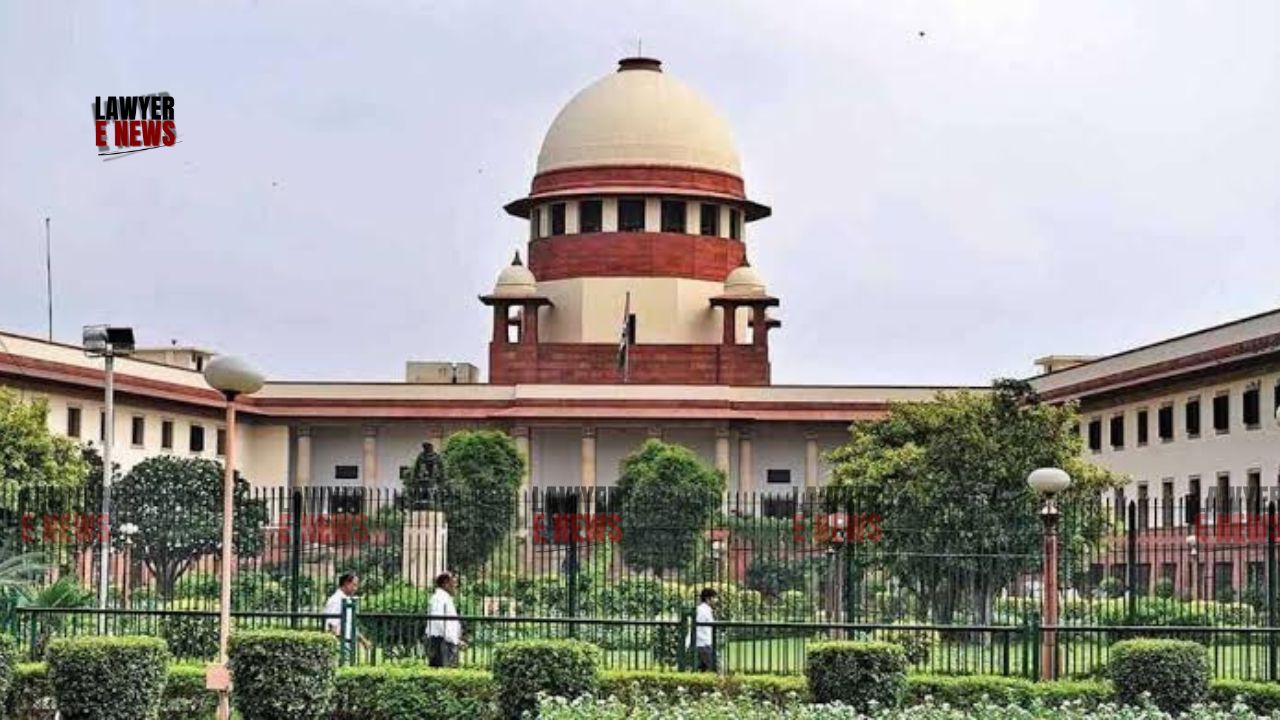-
by Admin
15 February 2026 5:35 AM



"In Matters Pertaining to Personal Liberty, Each Day’s Delay Matters," Says Apex Court. On September 12, 2024, the Supreme Court of India delivered a crucial judgment in Jaseela Shaji v. Union of India, quashing the preventive detention of Appisseril Kochu Mohammed Shaji under the Conservation of Foreign Exchange and Prevention of Smuggling Activities Act, 1974 (COFEPOSA). The Court found serious procedural lapses, including delays in transmitting and deciding on the detenu's representation, violating his rights under Article 22(5) of the Constitution. The apex court held that the gross negligence on the part of prison and government authorities in dealing with the detenu's representation rendered his continued detention unlawful.
The appellant, Jaseela Shaji, filed a habeas corpus petition after her husband, Shaji, was detained under COFEPOSA for alleged involvement in hawala transactions and illegal foreign exchange dealings. The Kerala High Court had earlier dismissed the petition, leading to the present appeal before the Supreme Court.
On August 31, 2023, the Joint Secretary (COFEPOSA), Government of India, issued a detention order under Section 3(1) of COFEPOSA to prevent Shaji from engaging in activities prejudicial to the augmentation of foreign exchange. The detention was confirmed by the Central Government on November 28, 2023. The Supreme Court, on July 31, 2024, allowed the appeal, quashing the detention order and directing Shaji’s immediate release.
Non-Supply of Vital Documents to the Detenu: Shaji’s detention was challenged on the ground that key documents, such as statements from witnesses including Ms. Preetha Pradeep, were not supplied, impairing his ability to make an effective representation. This was argued as a violation of his rights under Article 22(5) of the Constitution.
Inordinate Delay in Transmission and Consideration of Representation: The appellant also contended that Shaji's representation, made on September 27, 2023, was not promptly forwarded or considered by the Detaining Authority and the Central Government. This delay constituted a violation of Shaji’s fundamental right to have his representation considered "with reasonable expedition."
The Court observed that there was a delay of almost nine months in deciding the detenu’s representation, which had been sent via ordinary post by the Jail Authorities, an approach that was condemned as "callous" and "casual." The Court found that the Jail Authorities’ failure to send the representation by speed post or email, and their inability to track the correspondence, demonstrated gross negligence. This lapse caused an unjustifiable delay in the transmission of the representation to the Detaining Authority and the Central Government, effectively denying the detenu his constitutional right to personal liberty (Paras 64-69).
The Court reiterated that Article 22(5) mandates that the detenu must be afforded the earliest opportunity to make a representation against the detention, and that such a representation must be decided with "utmost expedition." The Court cited several precedents, including Tara Chand v. State of Rajasthan and Rattan Singh v. State of Punjab, to underline the importance of timely consideration of a detenu's representation. The Court stressed that delays caused by negligence or inefficiency in government machinery cannot be excused, especially when personal liberty is at stake (Paras 50-56).
The Court emphasized that, in matters of preventive detention, every day's delay is critical. In the present case, even after the representation finally reached the Central Government and the Detaining Authority in May 2024, there was a further unexplained delay of 27 and 20 days, respectively, in processing the representation. This compounded the violation of Shaji’s rights, with the Court categorically holding that the authorities' failure to act promptly violated the detenu’s right to a speedy decision on his representation (Paras 60-71).
The Court underscored that laws of preventive detention, while necessary for national security, must be balanced with the fundamental right to personal liberty. It quoted its previous rulings to highlight that the right to representation is not a mere formality but a critical constitutional safeguard.
“In matters pertaining to personal liberty of the citizens, the Authorities are enjoined with a constitutional obligation to decide the representation with utmost expedition. Each day’s delay matters in such a case.”
The Supreme Court concluded that the detention of Shaji was illegal due to the procedural lapses, particularly the inordinate delay in processing his representation. The Court set aside both the initial detention order dated August 31, 2023, and its subsequent confirmation on November 28, 2023. The Court further directed the immediate release of Shaji, provided he was not required in any other case.
Gross Negligence in Representation Transmission: The Court strongly criticized the casual manner in which the prison authorities handled the detenu's representation, leading to undue delays and a violation of fundamental rights.
Right to Speedy Decision on Representation: The delay in processing the representation was found to have directly infringed upon the detenu's constitutional rights, rendering the detention illegal.
Importance of Timeliness in Preventive Detention Cases: The ruling reaffirms the need for authorities to act with utmost diligence and speed in matters involving personal liberty, where even a day’s delay can have significant consequences.
Date of Decision: September 12, 2024
Jaseela Shaji v. Union of India
